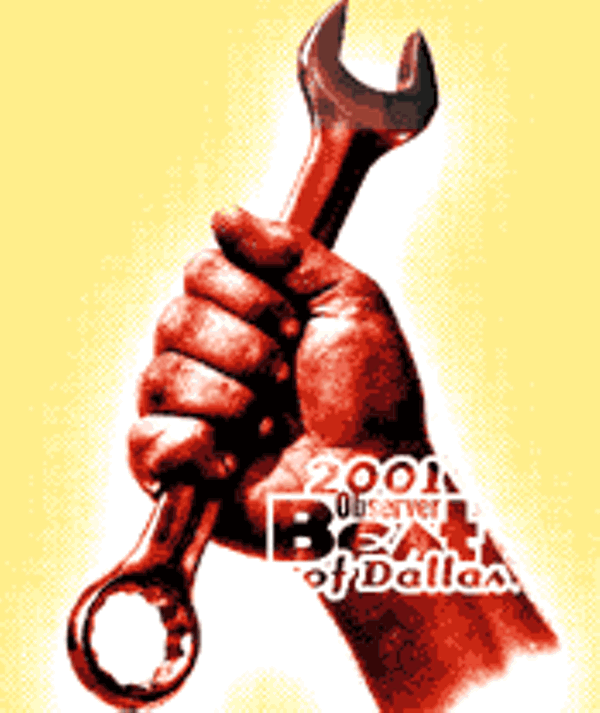"My repo friends are as perplexed by my theater work as my theater friends are perplexed by my repo work," he says with a smile.
He followed a buddy to Dallas in 1984 after both were released from the Army. Savering didn't come from a particularly artistic background, but he was always interested in writing plays and acting. He says he was "compelled to [performing] and terrified by it" when he took a few classes at Brookhaven College and started taking small theater gigs, like playing a spear carrier in a Hip Pocket Theatre show. He'd already begun a series of jobs to sustain himself: repossessing furniture, then earning his private investigator's license and going undercover looking for drugs in warehouses as well as tailing cheating spouses.
As for why he never pursued that most clichéd of actors' survival professions, Savering says, "I'm too misanthropic to wait tables, and I think I'd go crazy stuck in an office cubicle for eight hours."
His raw, learning-on-the-job approach to stage work eventually revealed a natural inclination for live performance. He launched Theatre Quorum more than three years ago and found a host venue in the Mesquite Arts Center, attracting some of the city's finest actors to work with him. Meanwhile, he settled on full-time auto repossession as his primary income, and last year went so far as to buy his own truck and start CS Services. He works mostly for small car dealers who do their own financing and drives all over Dallas mornings and evenings hunting down folks who have defaulted on their loans. He averages 10 to 12 cars a week; 40 repos mean a good month for him. Matt, his Australian cattle dog, sits passenger side during most tasks.
The gig is about 90 percent waiting and 10 percent action, but the adrenaline of nabbing a cheapskate works for him. "I enjoy leaving crooks stranded at 7-Eleven," he says. "It's flexible. It pays well for the hours I put into it."
Auto repossession features its own vagaries, some of them dangerous. Savering has poked rottweilers out of back windows with a stick. People sleeping in the backseat (some of them mean drunks) have been discovered once he returns to the lot. Women have offered him sex not to tow their cars; men have dangled drugs in front of him. And, of course, there's the small fact that Texans are willing to defend their property with deadly force.
"There's an adage in this business that says, 'If someone comes out waving a gun in your face, they won't shoot you,'" he notes. "And that's true. When someone wants to fire, they're not going to give you warning."
Savering discovered this on--ironically enough--April Fool's Day 1996. It was 5:30 a.m. in Lancaster, and he was silently attaching a car to the back of his truck. As he pulled out of the yard, the glass shattered in his back window. There was a warm wetness on the side of his throat. He sped away, and the event was over before he realized that someone had fired eight rounds from a .22-caliber rifle at him. One shot had grazed the side of his head and pierced the cartilage in his ear. He found the bullet in his truck bed and keeps it at home.
Despite the constant risk, Savering intends to continue his business. Besides the money and the flexibility, the solitude complements his art nicely. "It's great for me, as a stage director," he says. "While I'm driving around in the middle of the night, or parked down the street waiting, I can direct a show in my head. I'll stew about what needs to be fixed, what can be improved."





